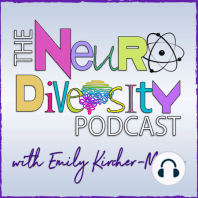33 min listen
What’s So Normal About Normal?
ratings:
Length:
32 minutes
Released:
Jan 13, 2022
Format:
Podcast episode
Description
Emily Kircher-Morris talks with Jonathan Mooney, who authored a book called Normal Sucks, and who learned to read at the age of 12. They talk about the gap between normal and neurodivergence, and how advocates can help bridge it effectively and permanently. Who can advocate? How does the life experience of neurodivergent people affect how they parent their own kids? How does the deficit-model approach differ from strengths-based? What is the effect of lack of support on mental health? ABOUT THE GUEST - Jonathan Mooney is a neurodiverse author and advocate who did not learn to read until he was 12 years old. He went on to graduate from Brown University and is the co-founder of Eye To Eye, a non-profit advocacy organization for people with learning and attention differences. He is also the author of three books, most recently Normal Sucks. His work has been featured in the New York Times, LA Times, on ABC News, and National Public Radio, to name a few. Mr. Mooney speaks across the nation about neurological and physical diversity, inspiring those who live with differences, and advocating for change. You can support the podcast and receive subscriber-only benefits at www.patreon.com/neurodiversity. The Neurodiversity Podcast is available on Facebook and Instagram, and on Twitter @NeurodiversePod. For more information go to www.NeurodiversityPodcast.com
Released:
Jan 13, 2022
Format:
Podcast episode
Titles in the series (100)
Potholes On Memory Lane: Gifted Kids and Trauma | Gifted | Parenting | Violence: Signs of trauma can easily be dismissed as symptoms of something else entirely. On episode 19, Emily welcomes author and trauma expert Heather Forbes to talk about how to identify the signs of trauma, and ultimately how to control and minimize its... by Neurodiversity Podcast
